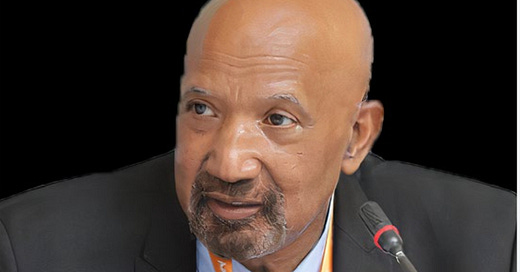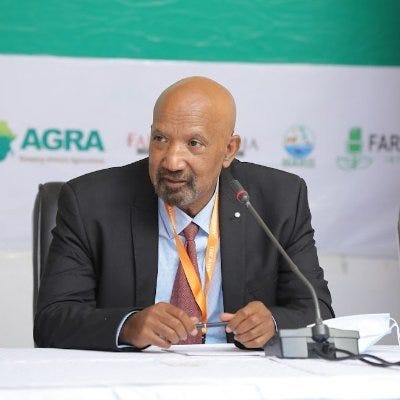OPINION - Research, extension and education key to revive agricultural transformation in Africa
In this opinion piece focusing on agricultural production across the African continent, the author explores key drivers necessary to enhance productivity and achieve food security in Africa.
KAMPALA, Uganda (Planet Defence) - Africa has made significant commitments and set agendas aimed at propelling the continent towards the vision of the 'Africa We Want.' Among these commitments, the Comprehensive Africa Agriculture Development Programme (CAADP) emanating from Malabo, Equatorial Guinea in 2014 and the 50-year vision, Agenda 2063, stand out as pivotal, encompassing various goals and agreements signed by African Union member states.
The 2022 Abidjan II communique embodies agreements by the African Development Bank, the African Union Commission (AUC), Forum for Agricultural Research in Africa (FARA), and Consultative Group on International Agriculture Research (CGIAR).
Its essence stresses Africa's urgent need to transform its food, land, and water systems for food and nutrition security, addressing challenges like climate change, conflict, and pandemics.
Launched in June 2023, an action plan seeks to operationalize the 2022 Abidjan II communique, aiming to rejuvenate African Agricultural Innovation Systems. It focuses on generating and delivering scientific solutions that drive research-to-innovation and development delivery.
Additionally, it emphasizes the importance of strengthening partnerships among African Agricultural Research, Innovation, and Education Institutions (AARIEIs).
To catalyze Africa's transformation, continental and regional AARIEIs have significant roles in addressing pressing issues. Identifying horizontal and vertical interfaces between institutions and fostering collaboration and coordination will be essential.
Key continental bodies facilitating this collaboration include Forum for Agriculture Research in Africa (FARA) for Agricultural Research for Development (AR4D), AFAAS for agricultural extension and advisory services, and Regional Universities Forum (RUFORUM) for human capacity development.
Sub-regional research organizations (SROs) like The Association for Strengthening Agricultural Research in Eastern and Central Africa (ASARECA), West and Central African Council for Agricultural Research (CORAF), and Centre for Coordination of Agricultural Research and Development for Southern Africa (CCARDESA), linked to FARA and national agricultural research systems (NARS), coordinate regional AR4D initiatives and connect NARS with continental initiatives.
At the national level, NARS, AFAAS country fora, and RUFORUM country chapters drive partnerships and collaborations among diverse organizations. Their focus converges at delivering scientific solutions to farmers and value chain actors - the crucial "last mile."
The ongoing alignment of various institutions towards a broader partnership signifies a pathway for a revitalized Africa agriculture transformation through multi-organizational approaches.
Key areas of action :
Policy formulation and investment planning for agricultural research, ensuring delivery across geographies and agri-food systems.
Enhancing knowledge, innovations/technologies, and advisory systems for effective last-mile delivery of science solutions to Africa's farming populations.
Developing capacities across agricultural value chains to enable Africa's science solutions while engaging with other knowledge centers.
Strategic policy actions to integrate African agri-food systems into global markets, bolstering Africa's farming systems.
Enhanced collaboration among institutions and members can align with the aspirations of the 'Africa We Want' in Agenda 2063. Unity among diverse stakeholders holds the potential to achieve these aspirations.
*Dr. Silim Mohammed Nahdy is the Executive Director of the African Forum for Agricultural Advisory Services (AFAAS) based in Kampala, Uganda. He is a specialist Planet Defence contributor.



